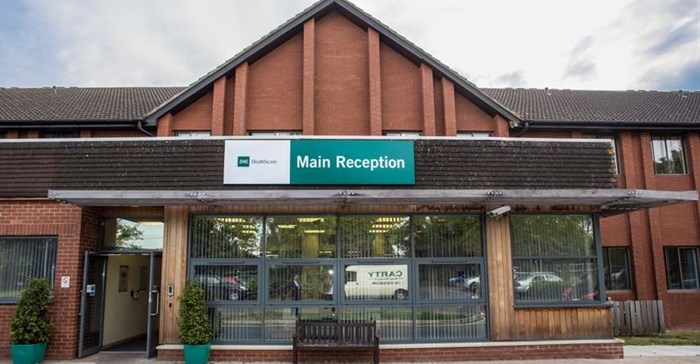
Related
Top stories






More news


Marketing & Media
Ads are coming to AI. Does that really have to be such a bad thing?














The hospital group acquired GHG in May 2006 as part of a consortium. Shortly after the acquisition, GHG was restructured into an operating company (BMI Healthcare) and a series of property companies (collectively PropCo) that held the hospital properties and leased them to BMI Healthcare under long-term leases.
“When these UK lease arrangements were concluded, they were considered market related and provided for a fixed escalation in rent of 2.5% per annum. However, following the global financial crisis of 2008, the accompanying declining private medical insurance (PMI) demand, and the sustained period of exceptionally low inflation in recent years, BMI Healthcare’s rent obligations have grown to be unaffordable,” says Dr Richard Friedland, Netcare CEO.
A statement by Netcare says the group has spent more than five years pursuing a rent reduction transaction with BMI Healthcare’s largest landlord on 35 of its 59 hospital properties. But as this is now highly unlikely, the business will not have the resources necessary for ongoing investment to allow BMI Healthcare to remain competitive and simultaneously generate an appropriate risk adjusted return commensurate with the rest of the Netcare group’s businesses.
“The continued escalation in rent is unsustainable. In 2017, rental costs represented approximately 20% of UK revenue and this is a drain on capital which BMI Healthcare otherwise needs for ongoing and future investment. This circumstance is not dissimilar to other businesses in the UK where rent obligations have become onerous.
“The UK healthcare market has changed fundamentally since Netcare acquired GHG in 2006 as a result primarily of the global financial crisis and recession that followed. This substantially eroded demand for private medical insurance in the UK. This was partially compensated by the increasing number of NHS patients treated in the private sector at lower tariffs. Recently however, and particularly since 2017, NHS demand management interventions to reduce elective surgery have impacted all providers.
“These pricing pressures have required the business to respond and implement efficiency measures. BMI has successfully done so over the last few years, but it is now critical that this large fixed rental cost be corrected as market conditions in the UK are expected to remain challenging in the medium to long term” says Friedland.
Netcare has previously indicated that it would not invest further capital into BMI Healthcare in the absence of a rent reduction transaction.
Furthermore, the short-term funding solution concluded with BMI Healthcare’s lenders in December 2017 expires on 31 March 2018. The lenders have conditioned any further short-term funding on existing GHG shareholders relinquishing effective control of the boards of directors of BMI Healthcare. Netcare has agreed, in the interests of the business, to accede to this demand. This has allowed BMI Healthcare to conclude a further short-term funding arrangement with its lenders and it will continue to pursue a longer-term funding arrangement.
Netcare has always ring-fenced its respective businesses in SA and the UK. As such, the debt obligations of BMI Healthcare and those of PropCo do not have recourse to Netcare and its South African operations.
“Just as our investment in the UK market made good sense at the time, so too we believe that the decision to exit that market is in the best interests of Netcare shareholders.
“Netcare’s business model in South Africa remains sound, and we’re expecting good growth in profitability in this financial year from the SA operations. As announced earlier in March, Netcare is delighted with the successful acquisition of Akeso Clinics in South Africa, with the addition of 12 dedicated mental healthcare facilities providing Netcare with an excellent and established platform from which to expand its mental health offering and contribute to the future growth of the group,” Friedland says.